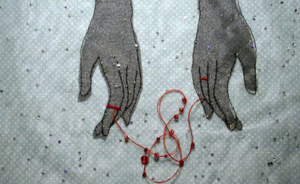Assignment 2:3

I loved reading all the different interpretations of this assignment, one take-away I’ve certainly had so far from this course is what a wide variety of experiences there are in a small group of people.
While I read many of the 2:2 assignments the ones I’ve chosen to reflect on are Eva, Sarah, Chino, Gabrielle, Arianne, and Maya. I made this selection in part at random and in part because of the diversity of stories and experiences that became apparent as I read through.
While incredibly diverse and wildly unique, every single person expressed an intense and meaningful connection to the word home. Interestingly, not one single person associated the concept of home with a literal house, in fact many even went so far as to explicitly disassociate home and house. I was surprised to read how the house could in fact interfere with the concept of home. Sarah poetically described the town as dressing her character, Nina, in so far as it contributed to who she become as a person, but it cannot be home without her mother.
Unanimously, everyone heralded home as a person or people in their lives who made them feel safe and valued as an individual. In Eva’s blog I loved the description of being crammed into close quarters, a time when most families would be susceptible to getting on each others nerves, as an intense period of bonding. In Maya and Gabrielle’s blogs they allow us to glimpse their struggles with finding a sense of home. For Maya it comes in her family later in life, something so many of us likely takes for granted, and for Gabrielle in life long friends she makes. Chino describes spending time watching sport with family and in that togetherness feeling at home. Clearly human connection, whether by blood or by bond, is a strong factor in a sense of home. Some of these distinctions between home and family reminded me of how so many people in the LGBTQ community are not accepted by their biological family and yet are able to create welcoming communities where your friends become your family, support system and subsequently – home. “[Chosen family] just gives you so much more strength than you have when you’re isolated” (Vermes, 2018).
I found that my own post resonated the most with Arianne’s, we both seem to feel an intense connection with the places our ancestors came from, her in England, and myself particularly in Italy. Arianne made several references to tea where I made several references to wine. I believe these past experiences and familial routines become engrained in our perceptions of comfort so much to the point where we both felt a deep connection to the places our families come from, especially when we both we able to visit those places. This in turn made me consider negative side of inherited memory; the concept of inherited trauma as we study Indigenous genocide and the history of genocide in Canada. “Intergenerational trauma, or transgenerational trauma, is what happens when untreated trauma-related stress experienced by survivors is passed on to second and subsequent generations” (Berube, 2015).
These pieces were brave, honest, and vulnerable. Thank you to everyone for your courage.
Works Cited:
A, Sola. “The Invisible Thread Between Two People Who Are Meant to Be Together.” RebelCircus.com, 20 Feb. 2018, www.rebelcircus.com/blog/invisible-thread-two-people-meant-together/.